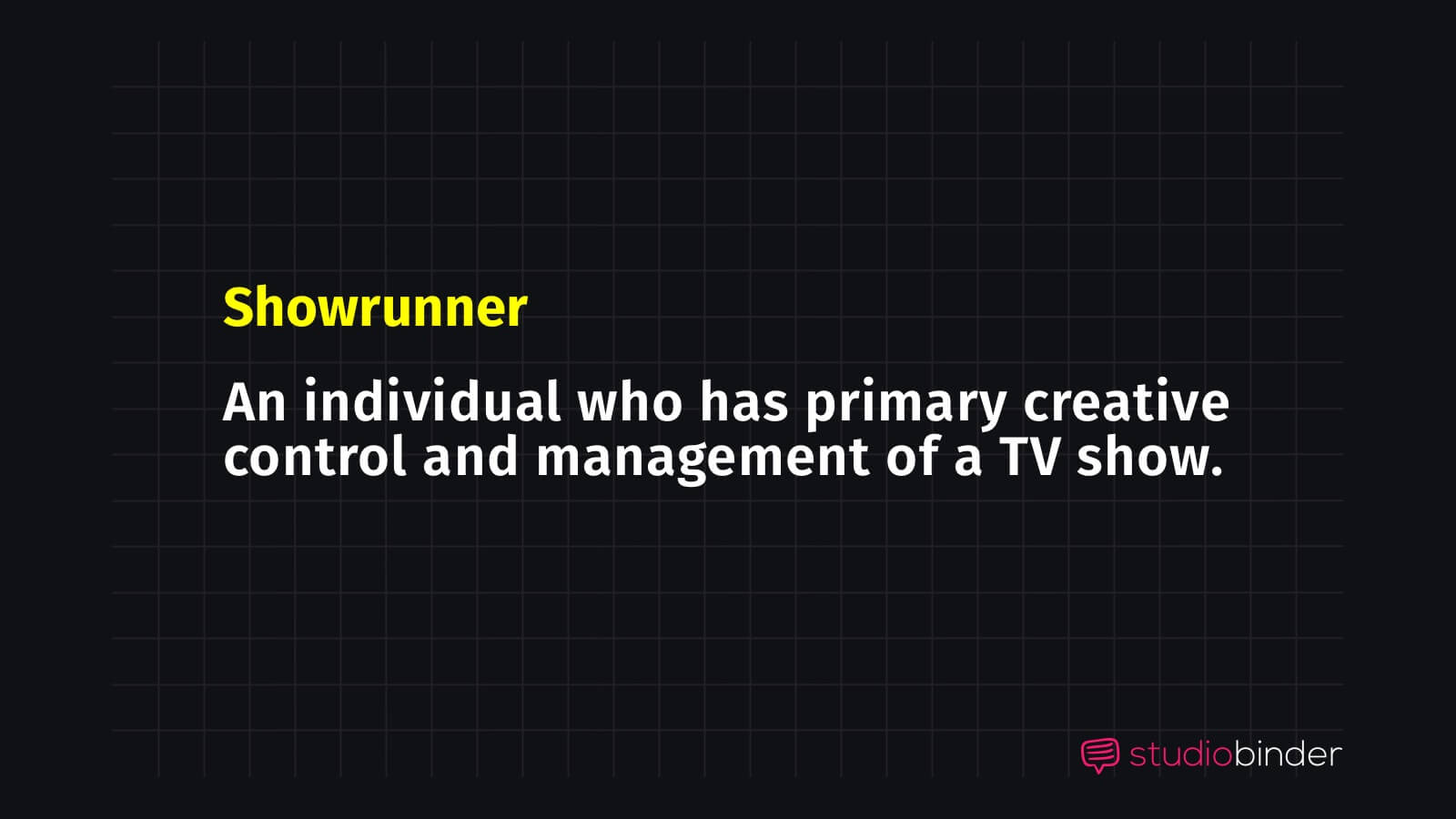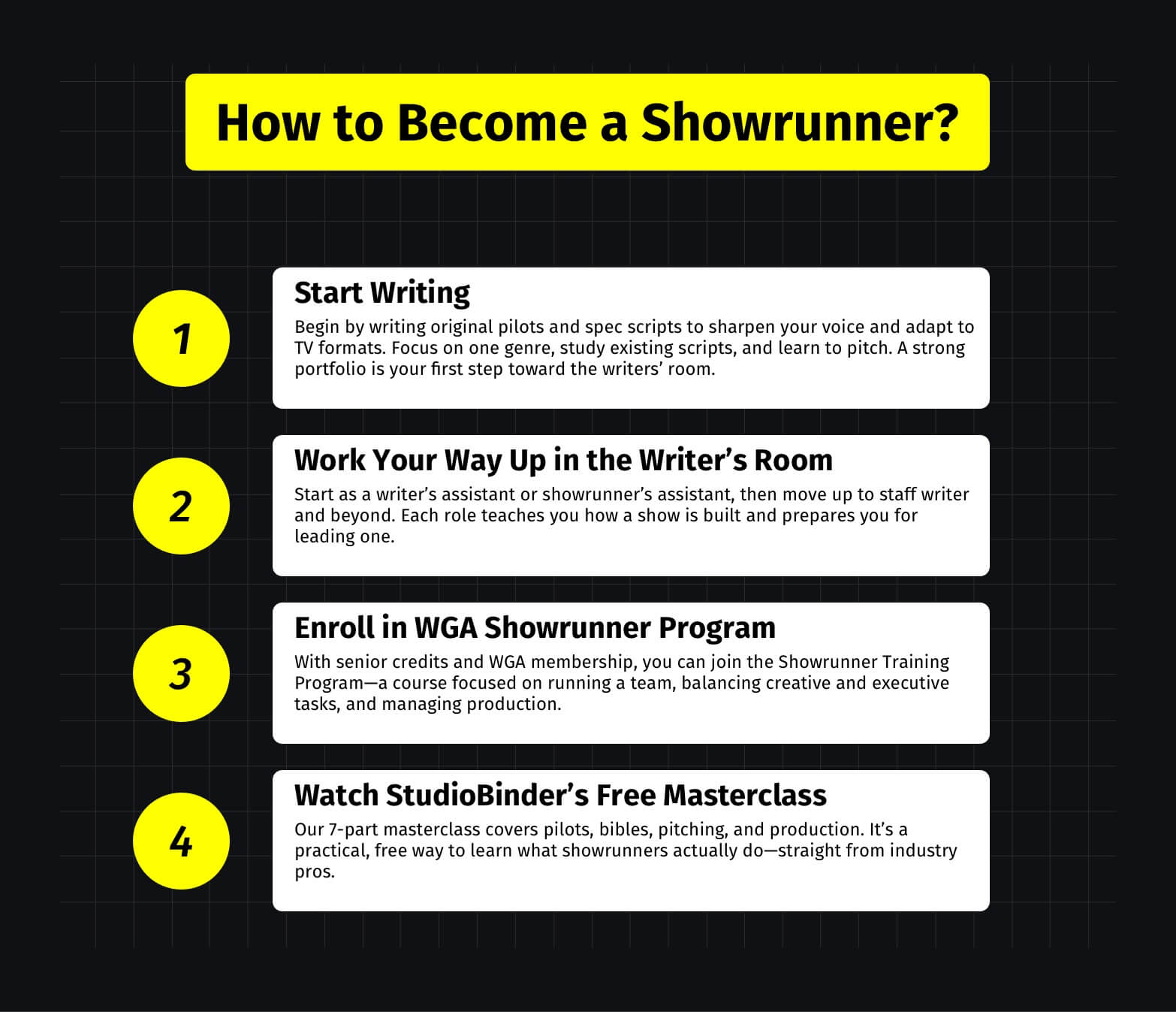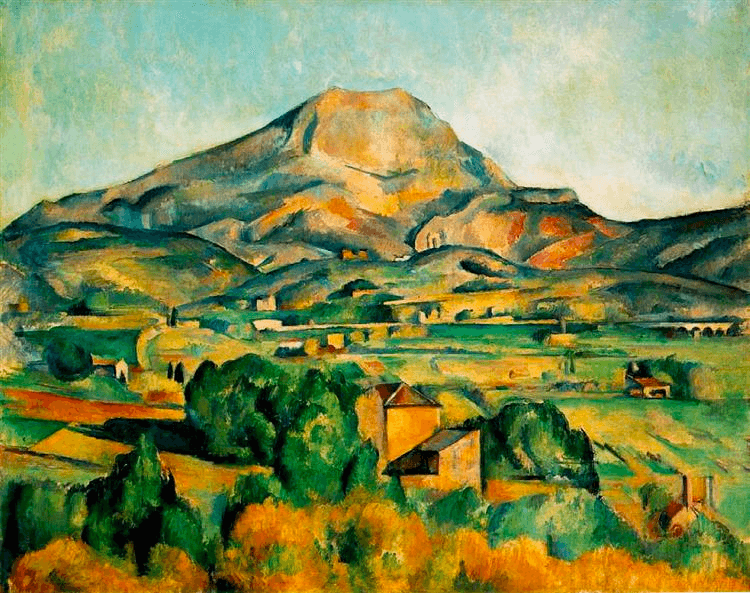Television shows have a lot of moving parts — almost every show employs numerous writers and directors. So, how do you make sure everything functions as it should while guaranteeing the overall creative vision of the series? This is the job of a showrunner — a position more like the conductor of an orchestra. We’ll break down the basic responsibilities of the role as well as what it takes to eventually become one. What is a showrunner? Let’s go behind the scenes of today’s biggest television and streaming shows to find the answer.
What's a Showrunner?
Showrunners explained
The nature of television production requires a team effort. In order to put out a TV show every week for months at a time, a number of screenwriters, producers, and directors are needed to pull it off. The TV Producers job description is quite a bit more involved than one might think.
If you consider the scaled of something like Game of Thrones, each season is essentially like shooting 10 movies at the same time. Perhaps that's why there are TWO Game of Thrones showrunners, not just one.
Let's define showrunner, explain their job description and look at how someone might actually become a showrunner of their own.
SHOWRUNNER DEFINITION
What is a Showrunner?
A showrunner is the individual who has primary creative control and management of a TV show. They aren’t always necessarily the creator of the show, but they’re almost always a writer. Showrunners are responsible for keeping the writers’ room moving forward, keeping the actors happy, and sticking to the budget for each episode. Most importantly, showrunners must adhere to the central creative vision of the series.
Showrunner Examples
- James L. Brooks, Matt Groening, and Sam Simon (The Simpsons Seasons 1 & 2)
- Matt and Ross Duffer (Stranger Things)
- Greg Berlanti (Arrow, The Flash, Legends of Tomorrow)
- David Benioff and D.B. Weiss (Game of Thrones)
- Donald Glover (Atlanta)

What is a Showrunner • Showrunner Definition
WHAT IS A SHOWRUNNER IN TV?
What does a showrunner do?
In a broad sense, the showrunner manages pretty much every aspect of a TV show. In many cases, showrunners develop the show, and from there, they’ll have a role from pre- to post-production.
Showrunners are in charge of the writer's room. They select the writing staff and are responsible for turning in episode and season outlines to the heads of the network. Each episode may have someone different with the “Written by” credit, but showrunners still read every episode to ensure a consistent tone and voice. In typical credits order, you'll most likely find the showrunner credited as an Executive Producer.
A group of famous showrunners gathered to discuss the craft and the challenges of such a role. Panelists include showrunners Sam Esmail (Homecoming), Marti Noxon (Sharp Objects), Nic Pizzolatto (True Detective), Steven Canals (Pose), John Singleton (Snowfall), and Sera Gamble (You). They discuss everything they face doing the job and some of the extra obstacles facing female showrunners.
Drama Showrunners Roundtable • The Hollywood Reporter
The easiest way to answer, “What is a showrunner?” is to think of the job as a mix between creative and managerial responsibilities. The person helps guide storylines, but they also need to work with the higher-ups. A showrunner may fight to get the show more money so that they can do certain storylines.
It’s for this reason a TV showrunner receives much of the praise for running a successful show. And conversely, the showrunner is often first on the chopping block when a TV show doesn’t do as well.
Here's another panel answering, "What is a showrunner?" As you'll see each of them has their own showrunner definition — as every production requires differing levels of involvement and oversight.
PGA Panel • What is a Showrunner?
A typical showrunner salary for first-timers tends to be about $30,000 per episode. But if you get to the level of someone like Shonda Rhimes, then showrunners can make $20,000,000 annually.
Plenty of great female showrunners have followed in Rhimes’ footsteps, such as Yvette Lee Bowser on Dear White People and Liz Feldman on Dead to Me. Feldman is a great example of someone who worked their way up, starting as a stand-up comic before working with Ellen DeGeneres and landing her own television show.
Related Posts
WHAT IS A SHOWRUNNER?
Today's top showrunners
In the past few years, the recognition of the showrunner has grown exponentially. There are certain famous showrunners we know by name because they bring such a specific vision to their shows. Here are a few of those noteworthy showrunners and what defines their work.
Dan Harmon
One of the most infamous examples of a showrunner bumping heads with a network is Dan Harmon. Harmon served as the showrunner for Community for three seasons before being fired ahead of Season 4. He was promptly brought back as co-showrunner for Season 5.
He also developed the story circle to help writers create better episodes of TV shows and feature films.
Dan Harmon Story Circle • Subscribe on YouTube
Harmon’s firing ultimately came down to issues between those two roles of a showrunner we talked about earlier. The showrunner needs to manage between the creative and managerial, and despite the show's success, it just wasn’t working on Community.
Harmon wanted to make good TV while the studio was interested in ensuring the show was a bigger rating hit. Harmon couldn’t make the show he wanted with the budget being proposed, so he was fired.
But getting rid of a show runner isn’t anything new. A new American Gods showrunner had to be brought onboard after Bryan Fuller and Michael Green left over creative differences.
Vince Gilligan
Unless you were in a coma between 2008-2013, you've heard of Breaking Bad. That show was created by Vince Gilligan who after a successful pilot also acted as showrunner for the entire run. Most showrunners are involved in many facets of the production but Gilligan went a step further and actually directed a number of episodes as well.
Ryan Murphy
Ryan Murphy inked a deal worth $300 million (not a typical showrunner salary, by the way) with Netflix to develop shows for the streaming service. Murphy is best known for spearheading shows like Glee, American Horror Story, and most recently, Netflix’s Hollywood.
Here's another panel with Murphy and more of today's top showrunners including Jenji Kohan (Orange is the New Black), Ava DuVernay (Queen Sugar), David E. Kelley (Big Little Lies), Noah Hawley (Fargo), and Lisa Joy (Westworld).
The True Stories Behind Hollywood • Netflix
One thing becomes apparent across his TV shows, proving him to be one of the most distinct showrunners around. Gorgeous aesthetics, confident underdogs, and excellent roles for Sarah Paulson typically show up in his works. Essentially, you always know when you’re watching a Ryan Murphy TV show.
Shonda Rhimes
When Grey's Anatomy debuted in 2005, it began the rise of the medium's most successful and influential showrunners: Shonda Rhimes. On her resume, Rhimes has led some of the latest and greatest shows including Scandal, How to Get Away with Murder, and Empire. Recently, Rhimes signed a massive development deal with Netflix.
Here she is in conversation on the future of storytelling and her unique (some would call revolutionary) answer to "What is a showrunner?"
Shonda Rhimes • The Future of Storytelling
Related Posts
SHOWRUNNER Jobs
How to become a showrunner
No one becomes a showrunner overnight. Showrunner jobs can difficult to get — it almost always requires years of previous experience in producing and/or writer's rooms. While there are many ways to get ahead in the industry, here’s the common step-by-step way many people have gotten the role.
1. Start Writing
First, you need to develop good writing habits and hone your craft. Start creating original pilots in addition to writing spec scripts in the proper TV script format. Original pilots allow you to develop a unique writing style. Meanwhile, spec scripts are great for learning how to get inside another writer’s headspace.
During this time, you can learn what television shows you’re drawn to. Do you mostly want to write comedies or dramas? It’s best to focus on a single niche/genre rather than a little bit of everything or else an agent won’t know how to place you.
Here's a quick checklist for writers looking to jumpstart their career:
- Find out when pilot season is
- Read and study other TV pilots like The Office and Stranger Things
- Find the best online screenwriting software
- Learn how to write better dialogue
- Enter your work into screenwriting contests
- Practice pitching your TV show idea
2. Work Your Way Up in the Writer's Room
Showrunners need to understand as many aspects as they can about creating a television show, so you should be familiar with the responsibilities of everyone you may eventually be in charge of.
You can start from the bottom as a writer’s assistant to a staff television writer to a story editor to a showrunner’s assistant and so forth. It’s a long ladder up but worth it for the right individual.
Here are showrunners like Greg Daniels (The Office U.S.) discussing how they run their writer's rooms.
Showrunners on working in the writer's room
3. WGA Showrunner Program
People who are currently active WGAE or WGAW members with a “supervising producer” credit or above on a current TV series or has a pilot script currently set up at a network is also eligible to apply for the WGA showrunner program.
This program will teach you everything you need to know about running a TV show. And many prior entrants went on to great things.
Learn more all about the WGA.
4. Watch StudioBinder's free masterclass
While you're rising through the ranks of the writer's room, you can also get a head start on your career as a showrunner. StudioBinder's TV writing and developing masterclass will help you take your golden ticket idea from conception to a completed pilot.
Here's the first episode how to write a treatment for television.
Writing and Developing a TV Show Idea • Watch the entire Masterclass series

What is a Showrunner • How to Become a Showrunner
In this free, 7-episode course with topics like writing a pilot, creating a show bible, and secrets on how to pitch your idea, you will be extra prepared to answer the question: What is a showrunner? Me.
UP NEXT
What Does a TV Producer Do?
People who want to break into TV may ask, “What is a showrunner?” But there are other people who may ask, “What is a producer?” Both take a great deal of work, but those passionate about creating entertaining stories will find a way. Now that you have a better idea of what showrunners do, see if you have what it takes to be a producer like the Game of Thrones showrunners.
Up Next: What Does a TV Producer Do? →
A boom operator, a key player in the film, television, and radio industry, is entrusted with managing the boom microphone, an instrument critical for recording superior, unblemished sound on set. They are essentially the sound artists of the set, ensuring every spoken word, every sound effect, is captured with utmost precision.
To delve deeper into the intricacies of this role, let’s explore the responsibilities, the pathway to becoming a boom operator, and the potential earnings that come with it.
What is a Boom Operator in Film Production?
First, let’s define boom operator
Boom operators play a crucial role on film sets, responsible for capturing high-quality audio. Let's delve deeper into the specifics of their job description and the skills required to thrive in this position.
BOOM OPERATOR DEFINITION
What is a boom operator in film production?
A Boom Operator, in the context of film, television, or radio production, is an audio technician who operates the boom microphone. This essential role involves meticulously capturing high-quality sound on set.
The boom microphone itself is a large, long-range microphone typically mounted on a specialized arm or "boom." The skilled boom operator expertly maneuvers the boom to capture clear and crisp audio while remaining strategically out of the camera's frame, ensuring a seamless visual experience for the audience.
What is a Boom Operator in Film Responsible For?
- Manages boom microphone positioning
- Ensures clear audio capture
- Avoids intrusion in shot frame
Boom Operator Job Description
What does a boom operator do?
As a boom operator, you have several important responsibilities and duties that contribute to the overall sound quality of a production. Let's break them down into subsections:
Boom Mic Operation
Your primary responsibility is to hold or rig the boom mic in such a way that it remains close to the actors or action without being visible in the camera's view.
You must closely follow the movement of the actors, ensuring that the microphone captures dialogues clearly while minimizing unwanted noise.
Sound Management Assistance
In addition to mic handling, you often assist in managing the overall sound on set.
This may involve handling radio mics for actors, ensuring they are properly set up and functioning.
You may also be responsible for optimizing acoustics in the shooting location to achieve the best sound quality.
Collaboration with Sound Mixer
Your role requires close collaboration with the Sound Mixer to ensure optimal audio quality for the production.

Boom in film production
Working together, you and the Sound Mixer strive to achieve the best possible sound for the project, taking into consideration factors such as ambient noise, microphone placement, and overall audio balance.
By fulfilling these duties and responsibilities, you play a crucial role in capturing high-quality audio for the production.
Related Posts
What is a Boom Operator in Film Production?
How to become a boom operator
To establish a successful career as a boom operator, there are certain steps you need to take and skills you need to acquire. Being a highly technical role, it requires a solid foundation of knowledge and hands-on experience.
Formal Education
Start by pursuing a degree or diploma in sound engineering, film production, or a related field. These programs provide a solid foundation of theoretical knowledge and technical skills necessary for a career in boom operating.
Gain Practical Experience
Hands-on training is invaluable in this field. Consider volunteering or interning on film sets to gain practical experience and exposure to the industry. This will allow you to learn from experienced professionals and build important connections.
Learn the Equipment
Familiarize yourself with the different types of audio equipment such as boom microphones, audio mixers, and other equipment used in the field. Understanding how to set up and operate this equipment effectively is crucial for success as a boom operator.

Boom operator equipment
Develop Communication Skills
As a boom operator, clear communication with the sound mixer, director, and other crew members is essential. Hone your communication skills to effectively understand and implement their instructions, ensuring seamless audio recording on set.
Build a Portfolio
Create a portfolio showcasing your work as a boom operator. Include examples of projects you have worked on, demonstrating your ability to capture high-quality audio in various settings. This portfolio will be valuable when applying for jobs or freelance opportunities.
Network and Seek Opportunities
Attend industry events, join professional organizations, and network with other professionals in the field. Stay updated on job opportunities and actively seek out chances to work on film projects, whether it's independent films, commercials, or other productions.
Remember, becoming a successful boom operator requires a combination of education, practical experience, technical skills, and a strong network. With dedication and persistence, you can pave your way into this exciting field of work.
What is a Boom Operator in Film Paid?
Boom operator salary
According to PayScale's 2021 data, the average salary for a boom operator in the United States is estimated to be around $45,000 per year. However, it's important to note that this figure can vary significantly based on factors such as the individual's level of experience, the production's budget, and the geographical location of the work.
Factors like the size and scope of the production, the demand for experienced boom operators, and the cost of living in different regions can all influence the actual salary range for professionals in this field. Therefore, it's crucial for aspiring boom operators to consider these factors when evaluating potential career opportunities.
Searching for Boom Operator Work
Find boom operator jobs
Finding work as a boom operator involves networking and taking advantage of job boards and industry resources. Sites like Indeed, LinkedIn, and Mandy regularly post job listings for boom operators.
It can also be beneficial to join industry organizations such as the International Alliance of Theatrical Stage Employees (IATSE) to gain access to union jobs and networking opportunities.
A boom operator is essential in film production for clear, high-quality audio. This career requires formal education, hands-on experience, and understanding of audio equipment. With communication skills, a portfolio, and a professional network, aspiring boom operators can succeed. Perseverance, dedication, and passion are key to success in any career.
Up Next
Discover more filmmaking roles
Boom operators are often unsung hero’s an an important role on set. To continue through our series of the various filmmaking roles and positions, you can explore similar jobs like Sound Designer, Director, or Editor. Or you can jump over to our Film Crew Index to browse the entire range of filmmaking roles. Understanding what everyone’s role on a film set is will help make you a better overall filmmaker and a more efficient crew member.
Up Next: Explore more crew positions →
Showcase your vision with elegant shot lists and storyboards.
Create robust and customizable shot lists. Upload images to make storyboards and slideshows.
